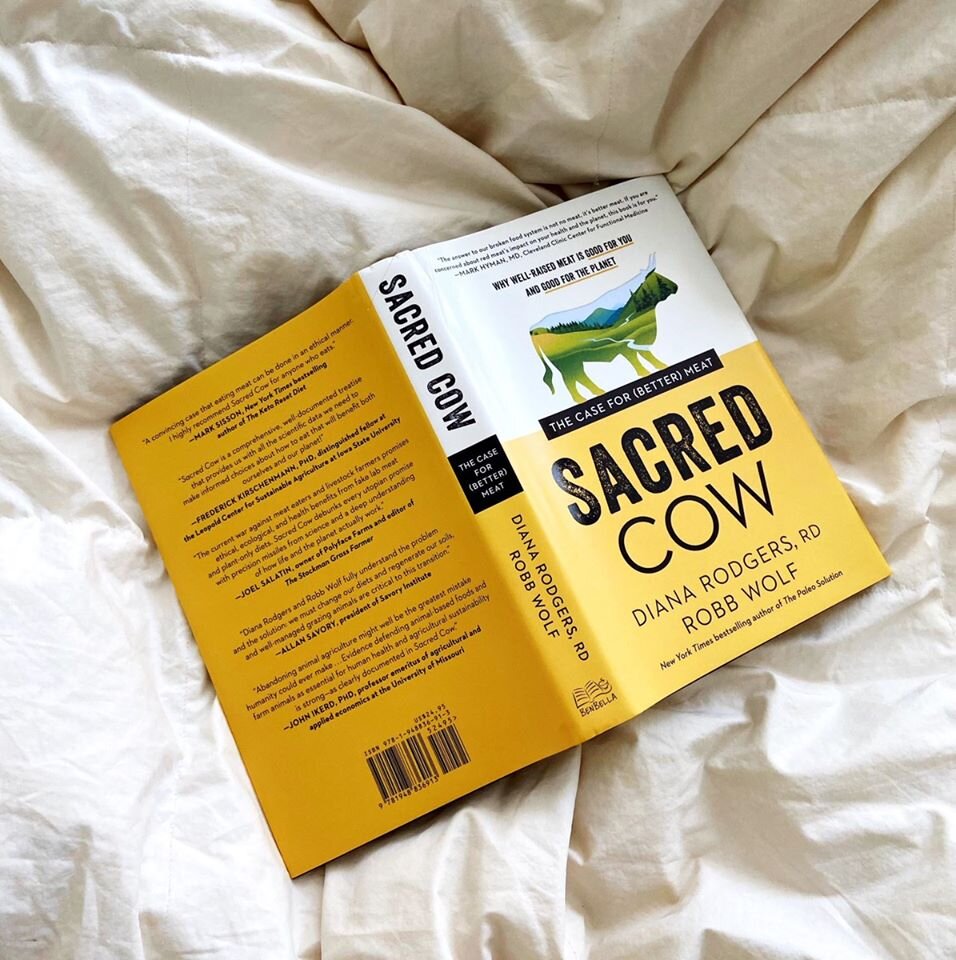
book summary: Sacred Cow
Sacred Cow by Diana Rodgers & Robb Wolf
4 out of 5
TL;DR Eating meat isn't killing the planet, however if we want to thrive it would BEHOOVE (get it, ha!) us to implement sustainable farming practices.
Do #vegetarians live longer than meat eaters?
No. However due to confounding factors around health, non-vegetarians are more likely to smoke or excessive drink, ultimately leading to earlier death therefore skewing results.
Are we eating too much #meat?
Our consumption has declined since the 70's — from 2.7oz per person/per day to 1.8oz as of 2016. We've made up the difference by increasing our intake of calories from sweeteners, grains & seed oils.
How much protein should we eat?
The RDA (aka MINIMUM WAGE OF #NUTRITION) states 0.8g per kg of bodyweight. This recommendation is only enough to keep you alive, not optimize your life. The AMDR (acceptable macronutrient distribution range) has a better grasp at 10-35% of calories coming from protein. Largely comes down to your goal.
Is grass-fed healthier than regular #beef?
Marginally yes. Perhaps not worth the money from a nutrient perspective, however if we look at sustainability, ethically raised meat will have less environmental impact overall.
Isn’t it possible for me to get all my nutrients from plants?
Yes, but only if you want to look like a pile of hashbrowns. Most people cannot thrive on a meatless diet because nutrients in plants are not as bioavaliable & most contain antinutrients causing multiple issues. Plus, you would get fat trying to match nutrient profiles: You'd need to eat 600 calories of beans & rice to get the same amount of protein you can get from only 160 calories of beef (3.5oz), not to mention B12 & heme iron.
Are cow farts killing the atmosphere?
No. Methane from cows is natural, whereas fossil fuels are not. Fossil fuels come from “ancient” carbon that has been locked underground for millions of years, and when extracted, adds new carbon to the atmosphere. Cows transform existing carbon, in the form of grass into methane as part of their digestive process. Methane is then farted out, broken down into H2O & CO2 molecules which are cycled back to grow more grass & the cycle continues.